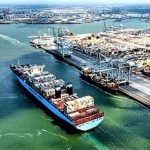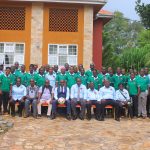World
Geopolitics: Russia Extending its Sphere of Influence in Africa’s Sahel
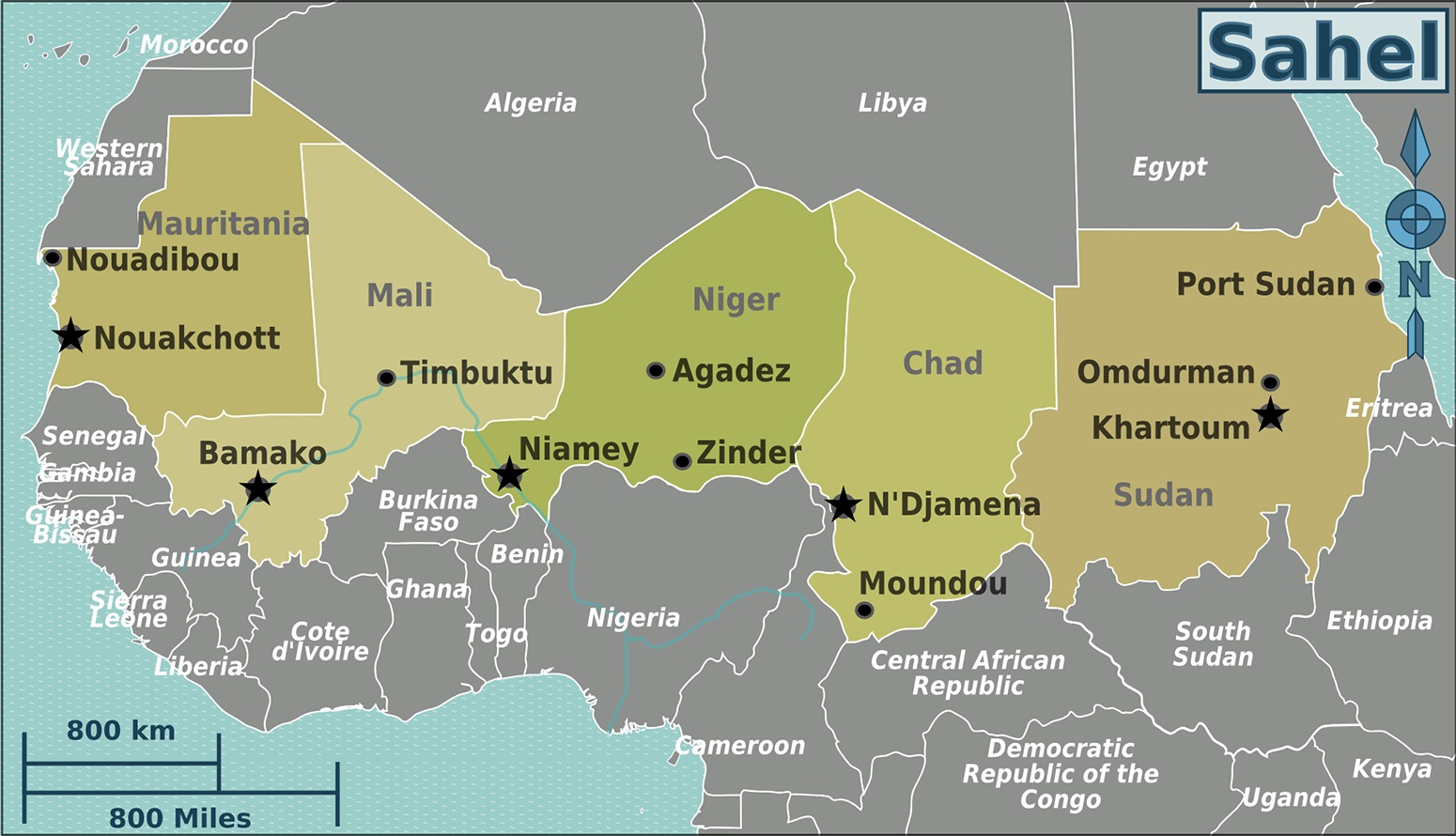
By Kester Kenn Klomegah
With renewed and full-fledged interest to uproot French domination, Russia has ultimately begun making inroads into Africa’s Sahel region, an elongated landlocked territory located between North Africa (Maghreb) and West Africa, and also stretches from the Atlantic Ocean to the Red Sea.
While it remains largely underdeveloped and the greater part of the population impoverished, terrorist organizations including Boko Haram and Al-Qaeda in the Islamic Maghreb (AQIM) are operating and have contributed to the frequent violence, extremism and instability in this vast region.
Usually referred to as the G5 Sahel, it consists of Burkina Faso, Chad, Mali, Mauritania and Niger. Besides instability, these countries are engulfed with various socio-economic problems primarily due to the system of governance and poor policies toward sustainable development. There are, in addition, rights abuse and cultural practices that affect development.
In July 2020, the United States raised concern over the growing number of allegations of human rights violations and abuses by state security forces in the entire Sahel. The US response came after the documents released by Human Rights Watch in early July. France, former colonial power, still attempts at dominating the region. France has announced the pulling out of the military force, abruptly ending its counter-terrorism operations and thus creating a huge vacuum.
By 2022, France plans to reduce and move its troops and will be restricted to regions that are not strategic for combating terrorism, which indicates that they will probably only act in the security of specific points, such as diplomatic and international organizations facilities. That ends the so-called “Operation Barkhane”, which was a military mission marked by a tactic of permanent occupation of the Sahel countries by French troops. The French government, however, apparently will try to reorganize its strategy in Africa. It seems that the focus of action will turn to the Gulf of Guinea.
For fear and concerns about the new rise of terrorism, the Sahel-5 countries are turning to Russia. Last year after the political power changed hands on August 18 in Mali, a former French colony with a fractured economy and a breeding field for armed Islamic jihadist groups, Russia offered tremendous assistance.
By showing support for the military government in Mali, Russia has utterly ignored or violated the protocols for implementing the “Silencing the Guns” agenda in West Africa, a flagship programme of the African Union’s Agenda 2063. Now Russia is capitalizing on this loophole opportunity, eyeing Chad and Mali as possible conduits, to penetrate into the Sahel.
Foreign Ministers of the Sahel countries have been lining up for visits to Russia, the latest being the Minister of Foreign Affairs, African Integration and Chadians Abroad of the Republic of Chad, Cherif Zene Mahamat, who paid a working visit on December 6‒8. Prior to that, Malian Foreign Minister Abdoulaye Diop visited in November. In both meetings, several critical issues were discussed: military assistance to fight growing terrorism, and efforts to strengthen political dialogue and promote some kind of partnerships relating to trade and the economy in the region.
In the middle of November, Chairperson of the African Union Commission, Moussa Faki Mahamat, agreed with Sergey Lavrov on terms of helping with the necessary equipment, weapons and ammunition in the Sahel. Lavrov referred to this in his opening remarks as “military and technical cooperation” with AU’s Chairperson Faki Mahamat – “a worthy representative in this high position of pan-regional importance.”
“We discussed African affairs at length: the difficult situation in the Sahara-Sahel zone that was destabilized after NATO’s aggressive attack on Libya. This was followed by an inflow of terrorists, smugglers, and volumes of illegal weapons from the north to the south of Africa. These criminals were particularly attracted to this area and the Lake Chad region,” Lavrov told the media conference following the closed-door meeting on December 7.
In the process, it is necessary to mobilize all available resources of the Africans and the international community for fighting terrorist groups. Nevertheless, it is also necessary for Russia’s efforts to maintain the joint forces of the Sahel Five, according to Lavrov. He further assured: “we will continue supporting it with the supply of arms and hardware and personnel training, including peacekeepers, as it is very important to help put an end to this evil and other challenges and threats, including drug trafficking and other forms of organized crime.”
According to several narratives, Russia has agreed to push the Wagner mercenaries into the entire Sahara-Sahel, including the G5 Sahel group of Burkina Faso, Chad, Mali, Mauritania, and Niger, which focused on combating terrorism. Many experts say Russia has set out to battle against the neo-colonial tendencies of France and stepping also to join what is often phrased “the scramble for resources” in Africa.
In his remarks, Lavrov explicitly points to creating favourable conditions for the implementation of Russian projects in Chad, including in the field of energy and the extraction of mineral resources.
Further to such narratives, Russia has meanwhile embarked on fighting “neo-colonialism” which it considers as a stumbling stone on its way to regain a part of its Soviet-era influence in Africa. Russia has sought to convince Africans over the past years of the likely dangers of neocolonial tendencies perpetrated by the former colonial countries and the scramble for resources on the continent. However, all such warnings could fall on deaf ears as African leaders choose development partners with funds to invest in the economy.
It is necessary to acknowledge that neither France, Russia, the United States nor any colonizing force will truly solve the problems that confront Africa. Some African leaders sign non-transparent agreements, routinely ignore both the executive and legislative decisions on tendering national projects and natural resources.
There have been cases, where huge natural-resource projects were given away without cabinet discussions and parliament’s approval. Apparently, these agreements on resources extraction hardly deliver broad-based development dividends.
Meanwhile, there are vivid indications that Russia is broadening its geography of diplomacy covering poor African countries and especially fragile States that need Russia’s military assistance. Chad, Mali and Niger, for example, have appeared on its radar, Russia sees some potential there – as a possible gateway into the Sahel in Africa.
Russian Foreign Ministry has explained in a statement posted on its website, that Russia’s military-technical cooperation with African countries is primarily directed at settling regional conflicts and preventing the spread of terrorist threats and fighting the growing terrorism in the continent. Worth noting here is that Russia, in its strategy on Africa is reported to be also looking into building military bases on the continent.
Over the past years, strengthening military-technical cooperation has been part of the foreign policy of the Russian Federation. Russia has signed bilateral military-technical cooperation agreements with many African countries. Researchers say it plans to build military bases as this article explicitly reported, among others.
Research Professor Irina Filatova at the Higher School of Economics in Moscow explains in an emailed conversation that “Russia’s influence in the Sahel has been growing just as French influence and assistance has been dwindling, particularly in the military sphere. It is for the African countries to choose their friends, but it would be better to deal directly with the government, than with (mercenaries of the Russian) Wagner group, whose connection with the government was barely recognized.”
In very particular cases, she suggested: “If they wanted the Russians to come and fight Islamist groups, it would be much better to ask the government to send regular troops. Wagner’s vigilantes are not responsible to anybody, and the Russian government may refuse to take any responsibility for whatever they do in case something goes wrong.”
In another interview, Grigory Lukyanov, a Senior Researcher at Russia’s Institute of Oriental Studies, explained that such relations are useful particularly in the field of resource extraction and security services, where Russia has competitive advantages.
According to media reports, the arrival of Russian mercenaries in the Sahel—of which thousands are expected—would jeopardize other external commitments to fighting terrorism, and limit development assistance from international organizations. For example, Reuters has reported that a possible contract could be worth US$10.8 million, or estimated more per month, depending on the contract, working with the Russian private military company Wagner Group.
Down the years, Kremlin has been saying the Russian government has no ties to the business of Wagner Group. Then at the same time, the Russian authorities have fiercely defended Wagner Group’s military business in countries facing conflicts that it has the legitimate right to work and pursue its business interests anywhere in the world as long as it did not break Russian law.
Reports indicated that the African Union has supported the activities of the Wagner group in Africa. While civilian abuses by the Russian mercenary group are rampant, especially in the Central African Republic, the African Union has displayed insensitivity in taking any drastic decision.
The Russians arrived in the Central African Republic in 2017 after the meeting between President Faustin-Archange Touadera and President Vladimir Putin and Russia’s Foreign Minister. Russian donated weapons to CAR’s weak military and provided 175 military instructors. Since then, the number of Russian instructors has grown to 1,200.
According to Pauline Bax, a Senior Editor and Policy Advisor at the International Crisis Group, “The situation in CAR is very precarious, a lot of the fighters are not necessarily Russians. There is a Libyan contingent. There are Syrian fighters, people from Ukraine and Chechnya fighters as well.
It is hard to get any clear idea of what exactly they do in the countryside. And this Wagner force together with the national army has managed to secure a lot of mining zones as well as major towns in the country, which was unprecedented, this has not happened in the Central African Republic in the last 20 years.”
United Nations Secretary-General António Guterres has often spoken against such collaboration, the use of Russian mercenaries in Africa. Instead, he has suggested pursuing the creation and deployment of the G5 Sahel Joint-Force and the United Nations Integrated Strategy (UNIS) for the Sahel could bring tangible progress. The countries in the region are particularly encouraged to adopt, with support from international partners, the necessary measures to fully implement the support plan in developing the region.
The Sahel-Sahara, the vast semi-arid region of Africa separating the Sahara Desert to the north and tropical savannas to the south, is as much a land of opportunities as it is of challenges. Although it has abundant human and natural resources, offering tremendous potential for rapid growth, there are deep-rooted challenges – environmental, political and security – that may affect the prosperity and peace of the Sahel.
For this reason, the United Nations has come up with a unique support plan targeting 10 countries to scale up efforts to accelerate prosperity and sustainable peace in the region. Burkina Faso, Cameroon, Chad, The Gambia, Guinea Mauritania, Mali, Niger, Nigeria and Senegal. The creation and deployment of the G5 Sahel Joint-Force and the United Nations Integrated Strategy (UNIS) for the Sahel could bring tangible progress.
The best option is to consider national and regional institutions, bilateral and multilateral organizations, the private sector and civil society organizations to work towards operationalizing and implementing the United Nations Security Council resolutions on the Sahel aim at attaining regional peace, and further accelerate the achievement of the Sustainable Development Goals (SDGs).
This article was first and originally published by IDN-InDepthNews
World
Tether Forays into Sustainable Infrastructure With 70% Stake in Adecoagro
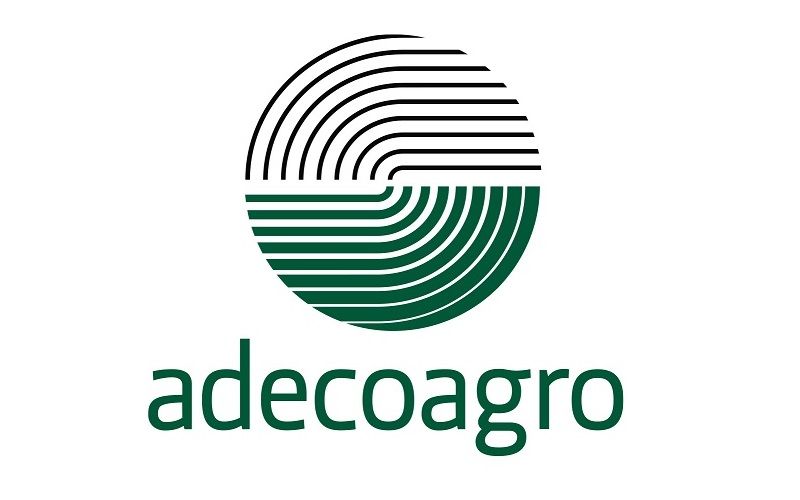
By Modupe Gbadeyanka
To cement its strategic expansion into sustainable infrastructure, a global technology company, Tether Investments, has acquired a 70 per cent equity stake in a leading sustainable production company in South America, Adecoagro.
The majority acquisition builds on an initial investment into the company, marking a decisive step in Tether’s long-term strategy to become a key player in global, real-world infrastructure.
With majority ownership secured, Tether is now in a position to accelerate Adecoagro’s growth and align its board and operations with a forward-looking vision focused on renewable energy, efficient resource use, and regional development.
Recall that in September 2024, Tether bought a 9.8 per cent stake in Adecoagro for about $100 million in a bid to expand beyond digital finance and into real-world infrastructure, including energy, agriculture, data, and communications.
The move was part of Tether’s growing focus on leveraging its capital and technological expertise to invest in businesses that support economic freedom and long-term resilience in emerging markets.
“Our acquisition of Adecoagro reflects Tether’s commitment to advancing sustainable, real-world infrastructure in regions where investment has historically been limited.
“By aligning with in Adecoagro’s proven expertise in agriculture and renewable energy, we are taking another concrete step toward bridging traditional industries with the future of decentralized finance and economic empowerment,” the chief executive of Tether, Mr Paolo Ardoino, said.
Also, the chief executive of Adecoagro, Mariano Bosch, said, “Tether’s investment marks a turning point for Adecoagro.
“Their commitment to building sustainable infrastructure complements our mission and opens exciting new possibilities. I thank our departing Board members for their steadfast contributions and warmly welcome the incoming directors, whose experience will help propel us forward.”
With this latest deal, Tether has changed the board of Adecoagro, with Mr Juan Sartor appointed as the new chairman.
He said, “This partnership with Tether brings a new era of opportunity for Adecoagro. We look forward to scaling the company’s impact in sustainable agriculture and energy, reinforcing capital discipline, and unlocking long-term value across South America.”
World
Results of the IV Forum Russia-Africa: What’s Next?

By Kestér Kenn Klomegâh
“The Fourth Forum “Russia-Africa: What’s Next?”, which took place from April 22 at MGIMO University of the Russian Foreign Ministry, concluded on April 25, 2025. The event confirmed its status as an authoritative platform for discussing key areas of cooperation between Russia and the countries of the African continent. This year, the Forum brought together 1,500 participants, including representatives of 41 African countries.
The business program included more than 30 events, including expert and panel discussions, round tables, creative brainstorms and other interactive sessions devoted to education, sports and space diplomacy, energy partnership, scientific cooperation, humanitarian interaction and information security. The Forum also included sessions organized jointly with the Center for Global and Strategic Studies and the Council of Young Scientists of the Institute of Africa of the Russian Academy of Sciences, the OIE Laboratory of the Institute of Europe of the Russian Academy of Sciences, the I.S. Turgenev, as well as the MGIMO Law Club.
Participants had the opportunity to exchange opinions and develop new approaches to developing relations between Russia and Africa. Particular attention was paid to the sports and cultural program, which allowed participants to immerse themselves in the atmosphere of the African continent and experience its diversity and color.
On the first day of the Forum, the II Russian-African Spartakiad was held, which included sports competitions in football, volleyball, and basketball. Dozens of heads of African diplomatic missions accredited in Moscow, as well as representatives of various Russian ministries and departments, attended the grand opening of the IV Forum “Russia-Africa: What’s Next?”.
The ceremony was hosted by I.V. Tkachenko, Attaché of the Department of African States (sub-Saharan Africa) of the Russian Ministry of Foreign Affairs, Executive Secretary of the Forum’s Program Committee. Russian Foreign Minister S.V. Lavrov addressed the participants with a video message. Advisor to the President of the Russian Federation A.A. Kobyakov also delivered a welcoming speech. Among the honored guests were MGIMO Rector, Academician of the Russian Academy of Sciences A.V. Torkunov, Deputy Minister of Foreign Affairs of the Russian Federation M.L. Bogdanov, Russian Senator, member of the Federation Council Group for Cooperation with African Parliaments A.V. Voloshin, Chairman of the State Duma Committee on International Affairs L.E. Slutsky, Honorary President of the Institute of African Studies of the Russian Academy of Sciences A.M. Vasiliev, Deputy Director General of ITAR-TASS M.V. Petrov, Head of the Department for Work with Government Agencies and Diplomatic Missions of African Countries, Consultant on Interaction with Africa Jose Fernando Sambo, as well as Chairman of the Council of Young Diplomats of the Russian Foreign Ministry E.M. Akopyan.
During his speech, Igor Tkachenko, together with MGIMO Rector A.V. Torkunov and Deputy Minister of Foreign Affairs of the Russian Federation M.L. Bogdanov, put forward the initiative to organize a Youth Day as part of the upcoming Russia-Africa summit in 2026. This proposal, aimed at strengthening intercultural dialogue and developing youth cooperation between the countries, received the support of the event participants.
Vice-Rector for Youth Policy, Social Work and International Relations Stanislav Igorevich. In his speech, Surovtsev emphasized that one of MGIMO’s main priorities is training new generation leaders who are ready to participate in implementing large-scale cooperation projects with African countries in all areas.
Stanislav Igorevich also noted that MGIMO traditionally acts in the forefront of educational partnership with Africa, relying on the rich traditions that were laid down in Soviet times and have survived to this day. Leading Russian and foreign experts took part in the Forum, including Director of the Department of Partnership with Africa of the Russian Foreign Ministry T.E. Dovgalenko, Deputy Director of the Department of International Organizations of the Russian Foreign Ministry V.E. Sergeev, Ambassador-at-Large of the Russian Foreign Ministry S.S. Belousko, State Duma deputies N.V. Novichkov, D.V. Kuznetsov, I.A. Filatova, representatives of major news agencies, as well as business and scientific circles.
The headliners of the Forum were the consultant on interaction with Africa Jose Fernando Sambu, the executive chairman of the African Youth Commission Marubini Muswede and the CEO of StudEx Group Tumelo Ramaphosa. The following exhibitions were presented on the sidelines of the IV Forum “Russia-Africa: What’s Next?”: “Africa: Past and Present…”, “Chroniclers of History”, and “Explore Uganda”, organized jointly with the Moscow Financial and Law Academy, the magazine “New Regions” and the Embassy of the Republic of Uganda, respectively.
The grand opening of the exhibitions took place on April 23 with the participation of the Rector of the Moscow Financial and Law Academy A.G. Zabelin, the Vice-Rector of MGIMO S.I. Surovtsev, the Deputy Executive Secretary of the Forum’s Program Committee, MGIMO analyst V.V. Zhuchkov and the Chairman of the Student Secretariat of the Forum V.G. Avetisyan.
The final event of the Forum was the Russian-African concert, which brought together talented performers from Russia and African countries on one stage. The cultural program included a variety of musical and dance numbers reflecting the rich heritage, culture and traditions of both regions.
Following the IV Forum, a number of fundamental documents were signed, including agreements on cooperation in the field of education and science with the Africa House organization and the Madagascar-Russia Brotherhood Association.
During the closing ceremony, consultant on interaction with Africa José Fernando Sambou, executive chairman of the African Youth Commission Marubini Muswede, as well as attaché of the Department of African States (Sub-Saharan Africa) I.V. Tkachenko and deputy executive secretary of the Forum’s Program Committee, MGIMO analyst V.V. Zhuchkov signed the final resolution of the Forum.
The partners of the event were the Russian Ministry of Foreign Affairs, Rossotrudnichestvo, the Roscongress Foundation, the Directorate of the World Youth Festival, as well as CMR Bank, Priority 2030 and the MGIMO Endowment. The general information partner was TASS, media coverage was also provided by Russia Today and the African Initiative. IV Forum “Russia-Africa: What’s Next?” became a confirmation of the mutual interest of the parties in developing cooperation and identified promising areas for further joint work.
World
A7 African Cargo Lines Connecting West Africa With Russia
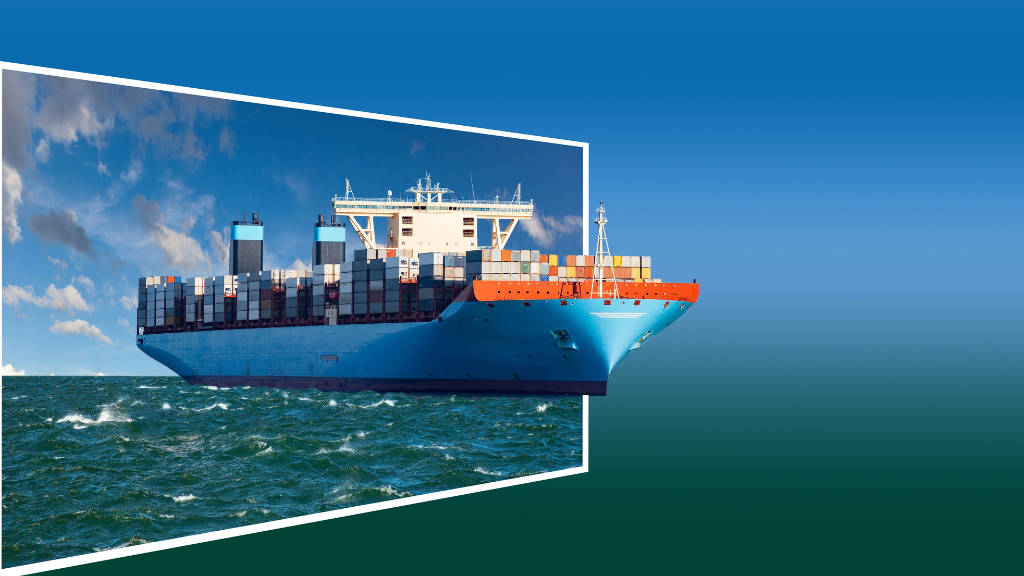
By Kestér Kenn Klomegâh
Today, boosted by the Kremlin’s diplomatic push and support from the Ministry of Foreign Affairs’ Department of Partnership, Russian companies are moving with multitude of development projects and corporate entrepreneurial investments into Africa. St. Petersburg summit has also charted the roadmap cum well-designed strategies for boosting the entire bilateral economic cooperation with the continent whose endowed resources include the huge human capital.
The geography of Russia-African economic cooperation is steadily expanding. As previously reported, the Russian Industry and Trade Ministry, since the beginning of 2025, approximately 150 Russian companies have moved into Africa. And with Africa, ready to engage in priority partnerships, the Russian registered company called A7 African Cargo Lines LLC (A7 ACL, Moscow) has started its logistics and shipping services to West Africa. According to the Unified State Register of Legal Entities, A7 African Cargo Lines LLC (A7 ACL, Moscow), was registered on April 17, and has its primary activity listed as railway freight transportation.
“We intend to operate in West Africa,” the Board Chairman Andrei Severilov, told Interfax regarding the company’s establishment. “At the first stage, with the assistance of the Russian trade mission in Nigeria, we are implementing a project to establish a direct shipping line,” Severilov said. According to the news report, the launch of a maritime route between Novorossiysk and Nigeria’s port of Lagos is planned for mid-June, with two container ships chartered for the line’s inauguration, each with a capacity of 700 twenty-foot equivalent units (TEU). Future plans also include establishing maritime connections with Senegal (Dakar port).
Severilov previously owned a 23.8% stake in PJSC Far Eastern Shipping Company (FESCO, the parent company of FESCO Transportation Group). In September 2024, Severilov announced his intention to re-enter the transportation business and established the asset management company A7 African Cargo Lines LLC (A7 ACL, Moscow), with a focus on Africa and primarily targeting to get substantive returns, in terms of, profits. It’s unique decision to take up logistics connecting Africa’s transport market is poised for significant trade growth, by transporting goods across the region and for exports to Europe.
By building a new shipping line that would connect the West Africa, first through Nigeria promises raising trade. Nigeria is Africa’s most populous nation and its largest economy. Nigeria is a key member of the African Continental Free Trade Area (AfCFTA), which is fostering intra-African trade and economic integration. In addition to above factors, Russian companies are showing increased interest in Nigeria, for example in reviving the countries largest steel plant. There is also interest in investing in Nigeria’s energy sector.
Undoubtedly, establishing A7 African Cargo Lines LLC (A7 ACL, Moscow) could be an explicit opportunity for promoting trade by its logistics infrastructure. Reports indicate that Russia’s exports to Nigeria currently amount to about $1.51 billion, mainly consisting of refined petroleum, wheat, and malt, while Nigeria exports a small amount to Russia, primarily cut flowers, other oily seeds, and nuts.
Further to that, the overall Africa’s trade statistics at the end 2024, soared to a record of $24.5 billion from the previous figure, approximate $20 billion that came up during the special panel discussions in 2023 when the second Russia-Africa summit was held in St. Petersburg, the second largest city in the Russian Federation.
By the next Russia-Africa summit slated for 2026, with high anticipation of more Russian enterprises dominating the African landscape, in spite of the existing complexities and challenges would extend or broaden the sphere of economic influence in the context of geopolitical power shifts being capitulated by the Western powers and President Donald Trump of the United States.
-

 Feature/OPED5 years ago
Feature/OPED5 years agoDavos was Different this year
-
Travel/Tourism9 years ago
Lagos Seals Western Lodge Hotel In Ikorodu
-

 Showbiz2 years ago
Showbiz2 years agoEstranged Lover Releases Videos of Empress Njamah Bathing
-

 Banking7 years ago
Banking7 years agoSort Codes of GTBank Branches in Nigeria
-

 Economy2 years ago
Economy2 years agoSubsidy Removal: CNG at N130 Per Litre Cheaper Than Petrol—IPMAN
-

 Banking2 years ago
Banking2 years agoFirst Bank Announces Planned Downtime
-

 Sports2 years ago
Sports2 years agoHighest Paid Nigerian Footballer – How Much Do Nigerian Footballers Earn
-

 Technology4 years ago
Technology4 years agoHow To Link Your MTN, Airtel, Glo, 9mobile Lines to NIN








